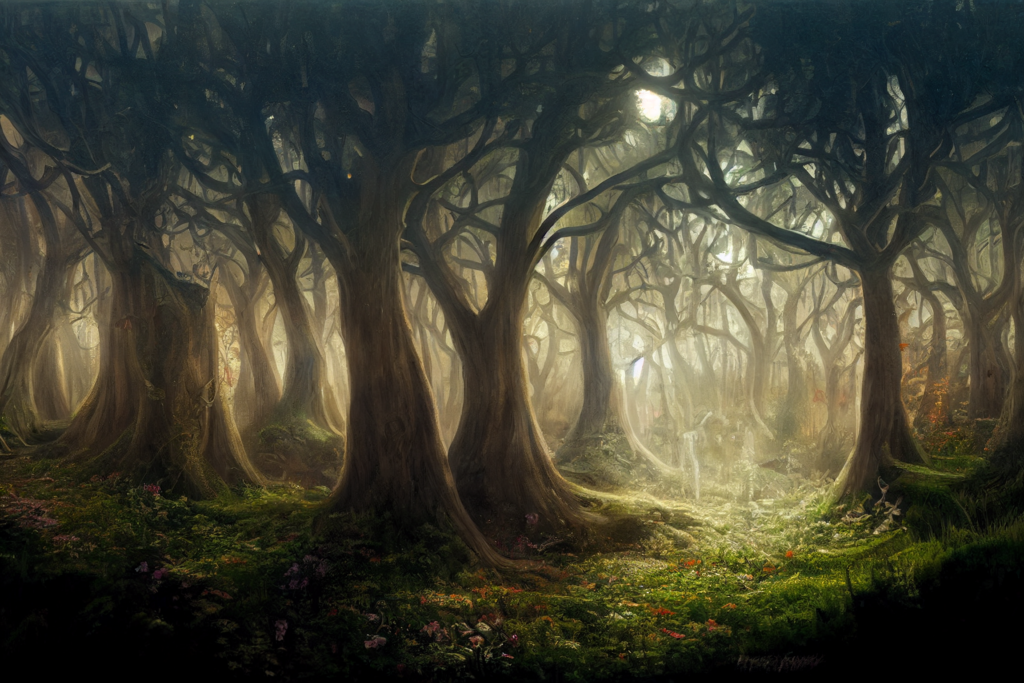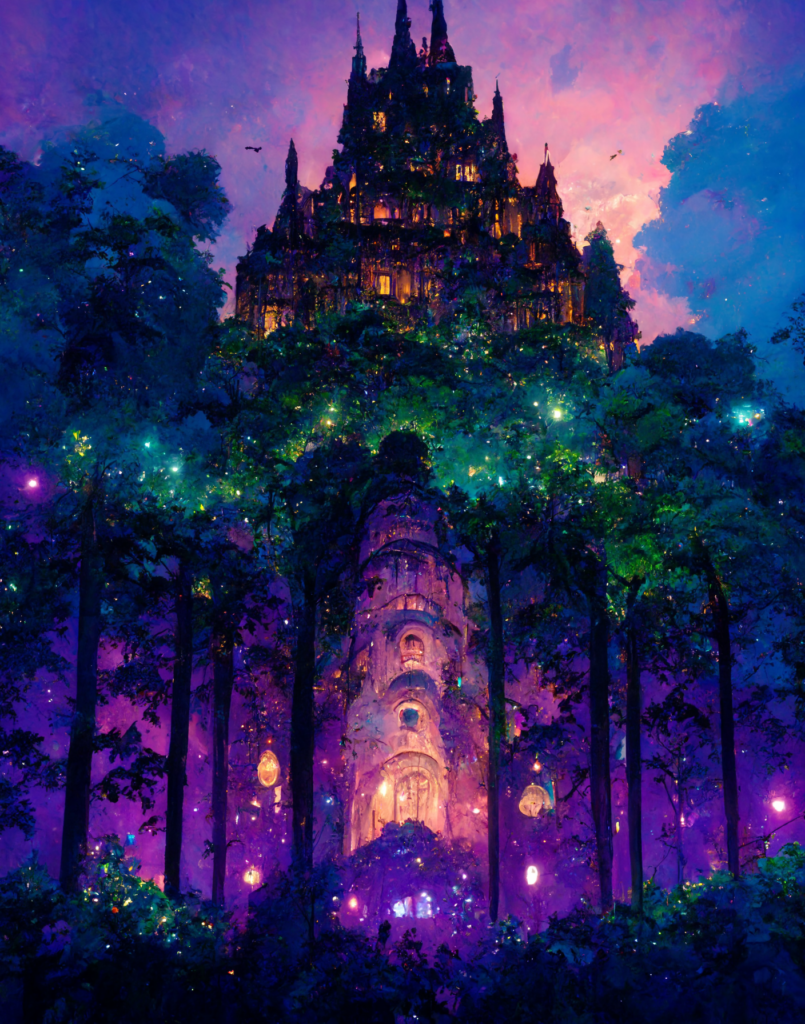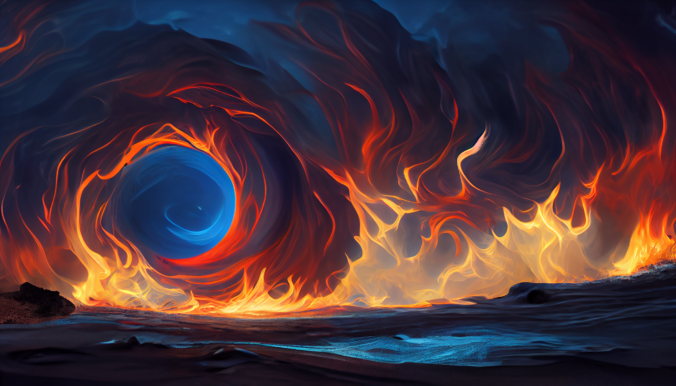You know that feeling you get when you’re looking for a specific word, but can’t think of it? It’s at the tip of your tongue, and you know it’s a very simple word, one you’ve used a million times before. And yet it escapes you. It drives you nuts, but you just can’t remember. You settle for a different word or phrase to move the conversation forward. And then, a minute later, Eureka! The word pops into your mind! Duh, no idea why this was so difficult for you, but there it is, the right word, like a good friend who never left you.
That’s basically the feeling I had about “New Enderra”. I liked some of the basic ideas in my Core Assumptions, but the whole thing was bothering me. I finally realized that I still clung to Enderra as Yet Another Fantasy Kitchen Sink. That’s what it started out as, that’s what it was for the longest time. And that’s why I decided to remake it.
I do not like Fantasy Kitchen Sinks. They are boring. And nobody needs another Middle Earth clone, especially now that Middle Earth is cloning itself.
Game System vs Game World

I think part of the problem is the decision to make it a Dungeons & Dragons 5th Edition world. I have now played dozens of D&D 5th Edition sessions. Mechanically, it is solid, but other than that it’s uninspired. And it does not give me the tools that I, as a player, need to create cool characters. (That’ll have to be a different post, but try to create a fun Necromancer and you’ll see what I mean.)
I’ll still likely use D&D 5th Edition for any game mechanics, but the game system must conform to the world, not the other way around. What does this mean? It means I’ll heavily house-rule Dungeons & Dragons 5th Edition and add actual game content as I go along. (Spells are at the top of the list.)
Most importantly, this allows me to change the tone of the game.
Sense of Wonder
Another thing I really miss when it comes to Fantasy Kitchen Sinks is sense of wonder. I still remember my days with the old color-coded BECMI boxes. Everything in those boxes was new and exciting. I need Enderra to be that “new and exciting” for myself. Not for you, or for anybody else – if it is, that’s a nice bonus – but it needs to excite me. Writing about Ye Olde Fantasy Towne isn’t going to cut it.
Looking back, the last time I felt any sense of wonder about a D&D setting was 4th Edition. The Nentir Vale was a great setting, especially since it just… crept in, spread over all the different D&D books, magazine articles, and so on. D&D 4th Edition codified the “Points of Light” campaign setup – not a new invention, but a new term for something that always existed: Civilization is limited to a few, spread-out places, separated by an unknown wilderness full of adventure stuff.
For all its modernistic, simulationist, almost video-game-like approach to game design, Dungeons & Dragons 4th Edition had returned to the roots of the game in the one way that truly matters to me: An unknown world, full of random, weird, and awesome things to explore. The original Forgotten Realms Graybox felt like that, as did the “Known World” setting in the days of the BECMI-boxes.
Strange Places

I already tore Enderra down to rebuild it, time to finish that job “in universe”. I had the right idea when I decided that the Empire had recently fallen. Instead of a bunch of civilized successor kingdoms, we’re going to keep a few towns and city-states around. Everything else is, once again, wilderness, ready to be rediscovered (and looted) by our heroes.
Enderra is a post-apocalyptic fantasy setting.
The “Fall of Civilization” was caused by the War of the Wizards, and that is why the survivors shun magic-users, sometimes to the point that they hunt them down.
The War of the Wizards – and other supernatural events, further in the past – also changed the landscape, made it weirder, more extreme, twisted. I mentioned this in the Empire section, but the effect is more global.
And the further away from civilization, the weirder the world gets. The enchanted Grimwood Forest isn’t too far from human settlements, as are the twisted forests and corrupted fields of the old empire, while the Desert of Howling Sands (where the storms are said to grind the skin off of unwary travelers) lies far to the south. Further afield yet are the Prismatic Jungle, the Living Lands, and exotic Xilan. Treasure hunters still travel to the utterly alien Black City, but very few dare to traverse the Land of Hellfire.
You get the idea.
Modular Design
One added benefit of turning the world into a, well, post-apocalyptic wilderness, is that the world design is mostly location-based and modular. I don’t need to write a big encyclopedia of the known world. I don’t even need a very detailed map for anything other than the most civilized areas.
After I nail down some basics, I can just add things as I go along. Not only is this easier, it also helps me discover this new world. Remember that sense of wonder I am looking for? Well, if I know everything in advance, that’s never going to happen. I want Enderra to surprise me, and this is the way to do that.
Fantasy Races, Now With Slightly Less Kitchen Sink
When I first started to work on New Enderra, I was very tempted to make it a humans-only setting. After talking to a couple people, I reconsidered and decided to include Orcs, Dwarfs, and Elves. We’ll still have them, but we’re changing them a little bit. The expectation is that all player characters will be human.
I, for one, welcome our new Elven overlords. At home in the wilderness, and better equipped to deal with magical strangeness, the Elves quickly expanded to take over territories once held by man. Few in number, their control of that territory is that of the nomad, but they are determined to hold what was once their ancestral land – before humans built their great cities.
Deep Below the Earth, the Dwarves Hide in their Mountain Homes. Dwarves, once wealthy merchants, live as isolationists, hiding in fortified mountain warrens, doubly besieged by the horrors of the outside world and by terrors that lurk underground.
Orcs be Orcs. Still the murderous bastards they have always been. When the great empires fell, the orcs moved in on now defenseless villages, and killed and ate the inhabitants. Everybody fears orcs, and for good reason.


Leave a Reply